Residents of Khori Gaon sell bricks salvaged from their demolished homes to make ends meet
The demolition drive at the Khori village in Faridabad has cast a shadow of uncertainty and gloom on the lives of an estimated 50,000 people, many of whom continue to live on the debris of their razed houses. With no water or electricity supply for two months now, it is a daily struggle to live under tarpaulin sheets.
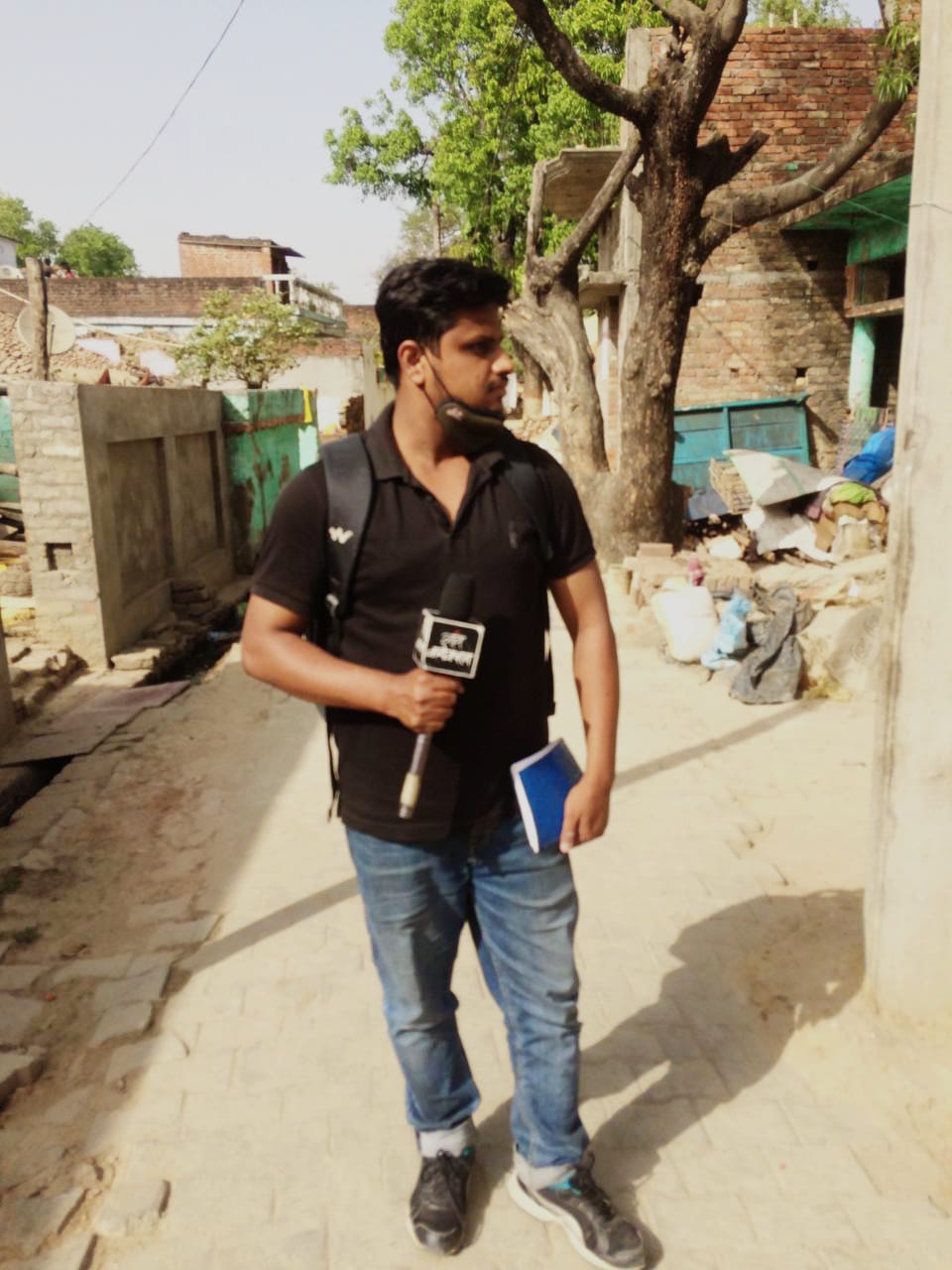
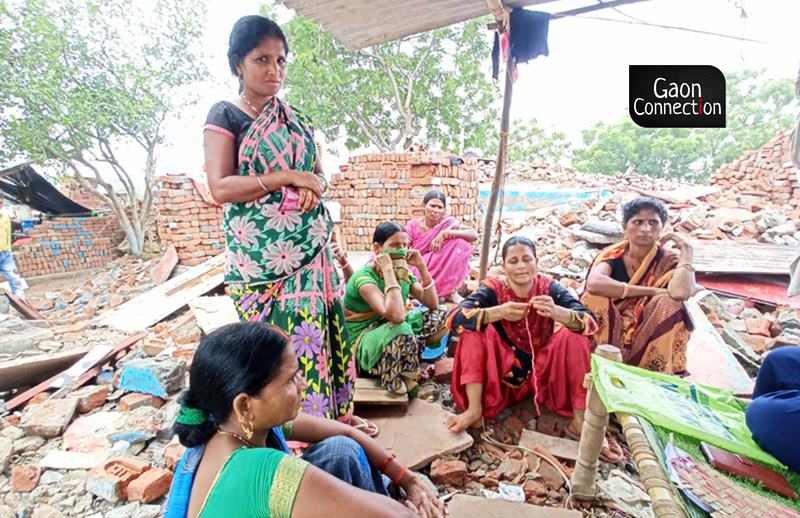
Over 50,000 residents of Khori village of Faridabad in Haryana have lost their homes and belongings and are now living in subhuman conditions. Photos by special arrangement.
Weakness, hunger, trauma, fever and uncertainty about the next meal keeps 38-year-old Sunita Devi anxious throughout the day. Sitting amid a heap of debris in Khori village, she spends her entire day salvaging the bricks of her demolished house which she later sells for a price of a rupee a brick. That’s her only source of income these days.
Sunita, a widow, and her 19-year-old daughter, spend the night under a makeshift tarpaulin shelter on the debris of their pulverised house. “Bhaiya, ya to main pagal ho jaungi thode din me ya zeher kha ke mar jaungi, bas yehi do cheezen samajh aa rahi mujhe,” (Either I’ll lose my mind because of this suffering or I’ll consume poison and end this life, I can’t think of what to do) Sunita told Gaon Connection yesterday, on August 5.
Like Sunita and her teenage daughter, there are over 50,000 people, the residents of Khori village of Faridabad in Haryana, who have lost their homes and belongings and are now living in ‘subhuman’ conditions.
On June 7, the Supreme Court of India ruled that Khori village had come up ‘illegally’ on forest land, thus paving the way for its demolition by the Municipal Corporation of Faridabad. In its recent hearing, the court said that those eligible were likely to be rehabilitated but not the ‘encroachers or landgrabbers’
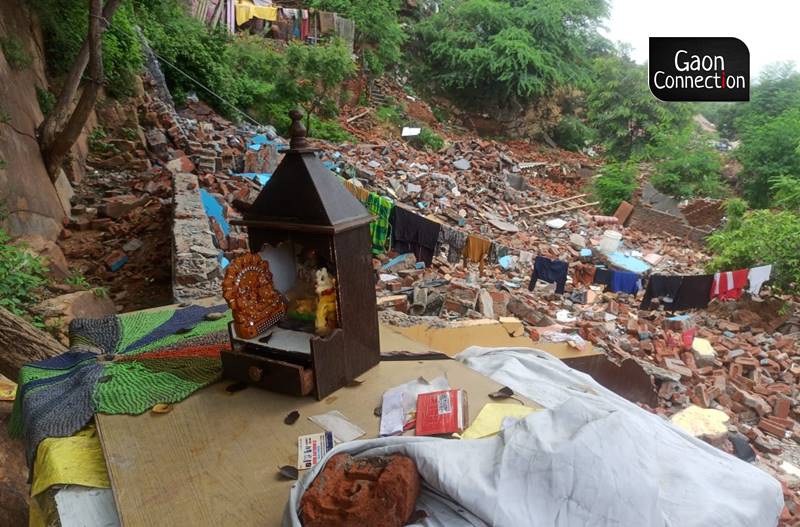
However, residents of Khori claim they have spent their life’s earnings to pay for the homes they bought from the local land mafia.
Duped by land mafia
Sunita Devi told Gaon Connection that she has been living at Khori for the past 10 years and had bought the house from a local land dealer.
When asked about the proof of her residence at the Khori village, which the Supreme Court has stated to be a compulsory requirement for rehabilitation, the widow informed that it was lying deep within the debris as the earthmovers demolished her house two weeks back. She alleged that no prior warning was given to the residents before demolishing their houses.
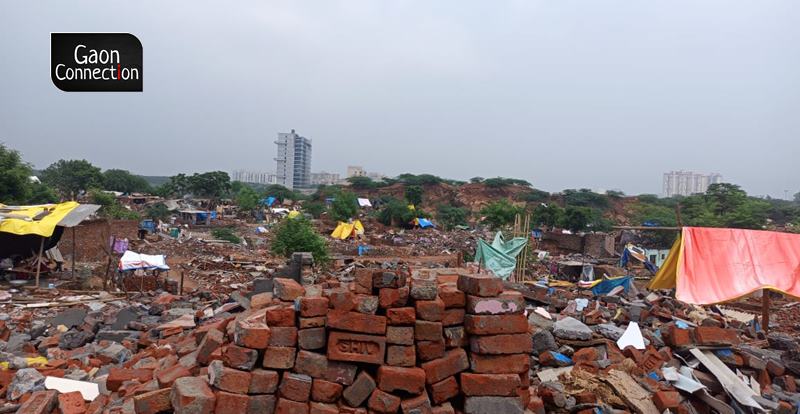
“All my personal belongings, my alimirah, the cash that I had, my clothes, pehchaan pramaan patra (ID proof) are stuck inside the debris,” Sunita lamented.
Gaon Connection was unable to independently verify the claims of Sunita as repeated calls to the Municipal Corporation of Faridabad’s office went unanswered. The story will be updated once a response is received.
Not very far away from where Sunita Devi sat collecting bricks of her demolished house, 45-year-old Shakuntala Devi was engaged in the similar task to earn an income. Latter informed Gaon Connection that she has been living at Khori village for the last eight years. Her house too has been razed by the municipality’s demolition squad.
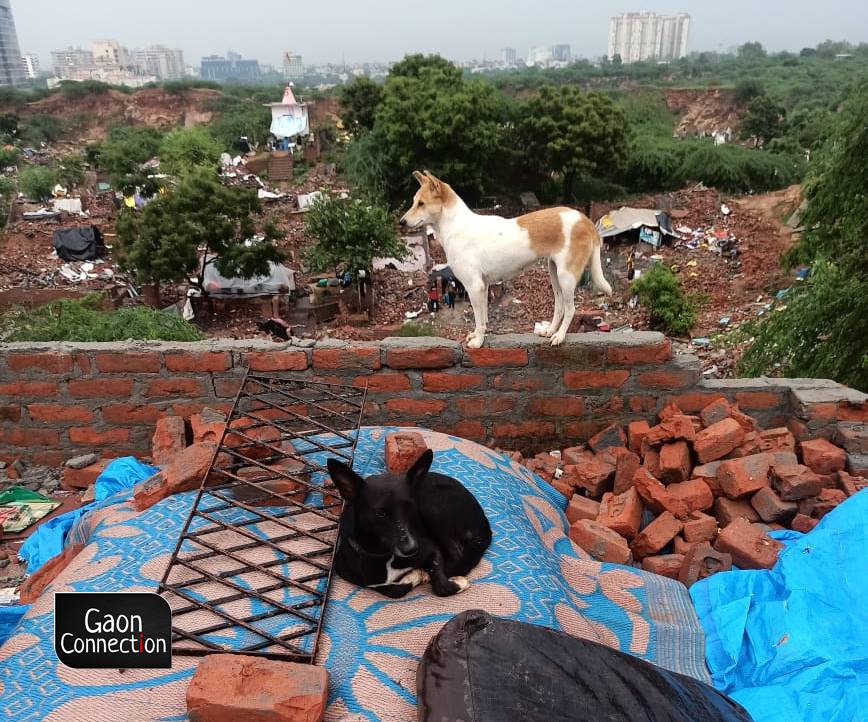
“Earlier I used to live in Noida [Uttar Pradesh], I came here eight years ago with my son and my husband. My son now lives separately after his marriage and I live here with my husband who used to sell vegetables before the demolition,” Shakuntala told Gaon Connection.
“I sold my earlier house in Noida and bought a new plot here after paying three and a half lakh (Rs 350,000) to an agent. We also had to spend another two lakh and seventy five thousand (Rs 275,000) for the construction of our house in Khori,” the 45-year-old informed. “We exhausted all our life savings in building our house. Now, the government has razed down everything. I feel utterly helpless,” she added.
Evicted and living in ‘subhuman’ conditions
Meenu Verma, a social activist and the leader of the Khori Bachao Andolan, which is leading the cause of the displaced villagers at Khori told Gaon Connection that the condition of the people living here is below human dignity.
“These people have been facing immense hardship and two square meals a day are difficult to arrange for them as they rely on the social workers and NGOs to give them food,” Verma told Gaon Connection.
Residents of Khori claim they are facing shortage of food and often do not know where their next meal will come from. Sunita told Gaon Connection that her meal consists of boiled rice diluted with salty water.
“Kamzori lagti hai, bukhaar aata hai, doctor ke yahan gaye the dikhane lekin wo mila nahin,” she said. (I feel weakness, fever is also there, I walked up to a doctor’s clinic but couldn’t find him)
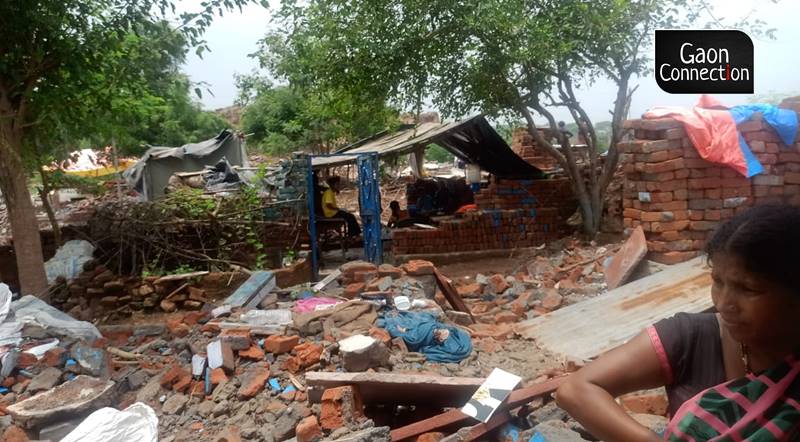
According to Verma, COVID19 screening had not been done in Khori and several people were running fever and showing COVID-like symptoms. “Many women are in their eighth or ninth month of pregnancy and even food is scarce, leave alone medical supplies,” she said. Monsoon season and rains were adding to the misery of those evicted.
The water and the electricity supplies have been cut off at Khori village for more than two months now and it’s a constant struggle for the villagers to survive under these conditions, complained Sunita.
Also, for washing and bathing purposes, the villagers are forced to use water from a small pond in the Aravalli in which the rain water gets collected, informed Shakuntala.
“These people filter the dirty, muddy water by sieving it through clothes and then manage to take a bath once in every ten days,” Verma said.
“About 20 per cent of the displaced villagers have relocated themselves to nearby areas like Tughlaqabad, Lalkuan and Sangam Vihar,” Verma informed. “A temporary camp has been set up at a Radha Soami satsang (a religious congregation) near the village where some of the villagers are cramped up like cattle. But the satsang is not in a condition to allow these people to enter the premises with their belongings,” the activist added.
Meanwhile, the Supreme Court has asked the Haryana government to expedite its decision on the rehabilitation policy of the displaced people. Social activists are demanding strict action against the land mafias who sold lands to these villagers. None of the land dealers have been arrested, they complain.

